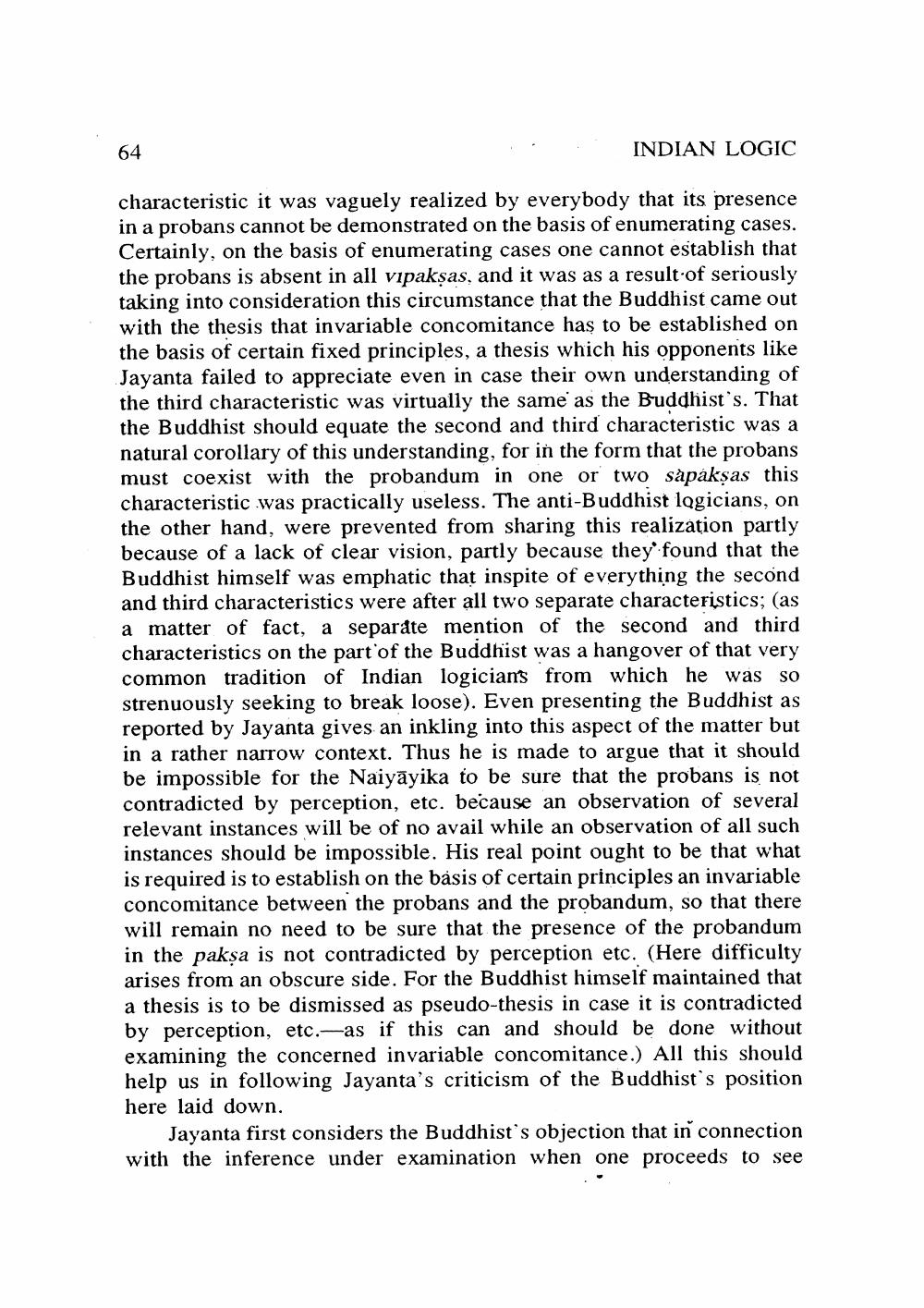________________
64
INDIAN LOGIC
characteristic it was vaguely realized by everybody that its presence in a probans cannot be demonstrated on the basis of enumerating cases. Certainly, on the basis of enumerating cases one cannot establish that the probans is absent in all vipaksas, and it was as a result of seriously taking into consideration this circumstance that the Buddhist came out with the thesis that invariable concomitance has to be established on the basis of certain fixed principles, a thesis which his opponents like Jayanta failed to appreciate even in case their own understanding of the third characteristic was virtually the same as the Buddhist's. That the Buddhist should equate the second and third characteristic was a natural corollary of this understanding, for in the form that the probans must coexist with the probandum in one or two sàpákşas this characteristic was practically useless. The anti-Buddhist logicians, on the other hand, were prevented from sharing this realization partly because of a lack of clear vision, partly because they found that the Buddhist himself was emphatic that inspite of everything the second and third characteristics were after all two separate characteristics; (as a matter of fact, a separate mention of the second and third characteristics on the part of the Buddhist was a hangover of that very common tradition of Indian logicians from which he was so strenuously seeking to break loose). Even presenting the Buddhist as reported by Jayanta gives an inkling into this aspect of the matter but in a rather narrow context. Thus he is made to argue that it should be impossible for the Naiyāyika to be sure that the probans is not contradicted by perception, etc. because an observation of several relevant instances will be of no avail while an observation of all such instances should be impossible. His real point ought to be that what is required is to establish on the basis of certain principles an invariable concomitance between the probans and the probandum, so that there will remain no need to be sure that the presence of the probandum in the paksa is not contradicted by perception etc. (Here difficulty arises from an obscure side. For the Buddhist himself maintained that a thesis is to be dismissed as pseudo-thesis in case it is contradicted by perception, etc.-as if this can and should be done without examining the concerned invariable concomitance.) All this should help us in following Jayanta's criticism of the Buddhist's position here laid down.
Jayanta first considers the Buddhist's objection that in connection with the inference under examination when one proceeds to see




